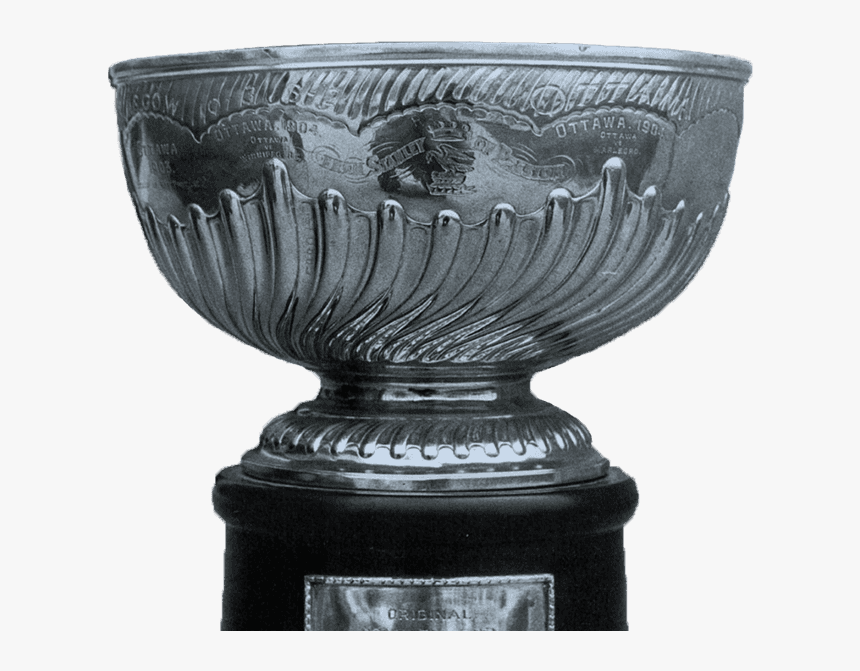
Lord Stanley of Preston, Canada's sixth Governor General, would likely turn over in his grave if he could witness the extent to which people have gone to lay claim to the trophy he donated in 1893.
by MARK MILLER
Fort McMurray Today (Fort McMurray, Alberta, Canada)
It's been lost, stolen, drop-kicked into a canal, abused reshaped, used as a planter, and often employed as a punch bowl.
And people have spent millions of dollars to get it.

Its history is as rich and bizarre as the history of the game itself.
The origin of the trophy has been pinpointed to a much-quoted letter from Lord Stanley which made hockey history.
“I have for some time been thinking it would be a good thing if there were a challenge cup which could be held from year to year by the leading hockey club in Canada. There does not appear to be any outward or visible sign of the championship at present. Considering the interest thal hockey matches now elicit and the importance of having the games played under generally recognized rules, I am willing to give a cup that shall be annually held by the winning club.”
And with that letter the Stanley Cup was born.

The original cup cost $48.67 and it was first awarded to the Montreal Amateur Athletic Association in 1892-93.
But the first Stanley Cup game wasn't played until the following year when Montreal AAA defeated the Ottawa Capitals, who had refused to play in a Stanley Cup game the previous year.
The game was played before a packed crowd of about 5,000 people.
Since then, teams, not including the present Toronto Maple Leaf hierarchy, have spent millions of dollars and traveled thousands of miles in quest of the Stanley Cup.
When spinning Stanley Cup yams, by far the most popular is the story of the Ottawa Silver Seven and their infamous dropkick into the Rideau Canal.
In 1905, before the days of the drug trade, hockey players were known to indulge in the occasional beer.
The Ottawa Silver Seven had just captured the Stanley Cup and naturally took their cup with them into an Ottawa hotel in order to celebrate.
It was on the way home from the victory party that one of the Ottawa players fancied the Cup as a football and wondered how far he could kick it into the Canal.
The kick was good and the players went home to bed as the Stanley Cup came to rest on the bottom of the Rideau Canal. Needless to say, several players spent some anxious moments fishing for the Cup the next day, and the following year the Ottawa Silver Seven turned the somewhat tainted Cup over to the Montreal Wanderers.
The Silver Seven were also part of one of the most bizarre challenges in the history of the Stanley Cup.
Late in 1904 the trustees, who decided when and who would play for the Stanley Cup, accepted a challenge from a team in the Yukon Territory. The Yukon was still experiencing the effects of the gold rush which began in 1897.

Colonel Joe Boyle had become a rich man during the gold rush and he financed the 4,400 mile trip to Ottawa for the game.
The team traveled by dog sled, stagecoach, boat, and or foot and finally arrived in Ottawa after 23 days, just one day before the series opened.
The Yukon team was no match for the Silver Sevens who won the best-of-three series by scores of 9-2 and 23-2. In the final game Frank McGee scored a record 14 goals, eight of them consecutively.
The Stanley Cup was awarded to the country's top amateur team until 1910 when the National Hockey Association, the forerunner to the NHL, took over possession of the Cup.
But not everyone who has had possession of the Cup has treated it with respect.
One team forgot the cup after a team picture and the photographer's wife took it home and grew geraniums in it.
And it gets better.
Members of another team stopped to change a flat tire and forgot the Cup on the side of the road only to return and pick it up a couple hours later. Twice the Cup has been stolen from the Hockey Hall of Fame in Toronto only to be recovered by police.
One guy said he wouldn't return it unless all criminal charges against him were dropped.
But by far this writer's favorite Cup theft is the case of the Montreal fan who took the Cup from a display case after a 1962 playoff game in Chicago between the Canadiens and the Black Hawks.
When police caught up with him in front of the arena the fan said he was returning the Cup to Montreal “where it belonged.”
Lord Stanley never would have believed it.

